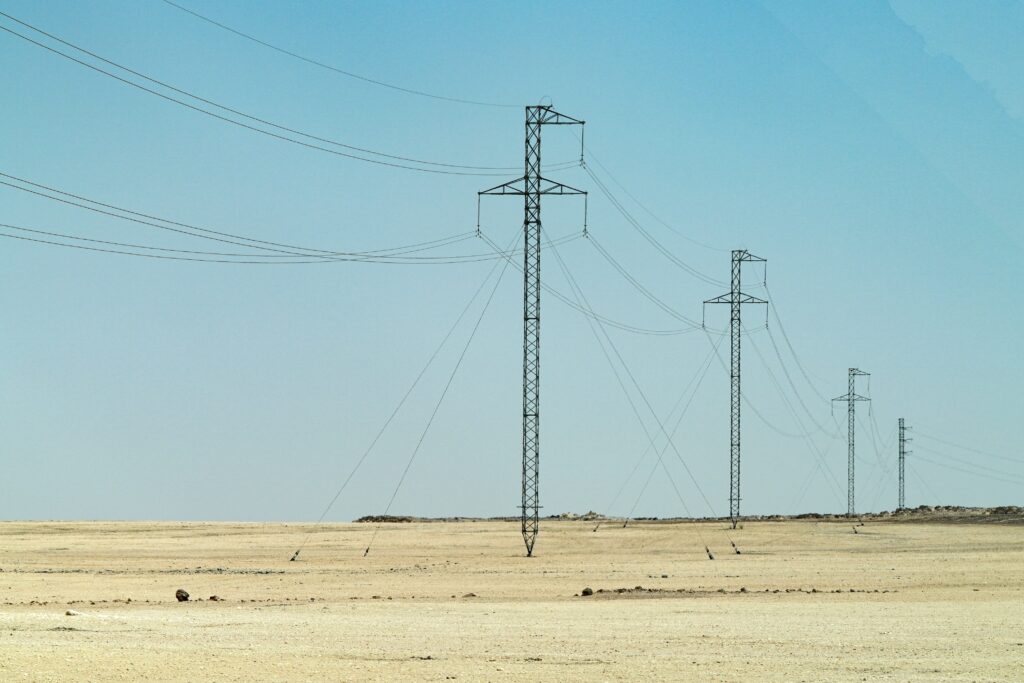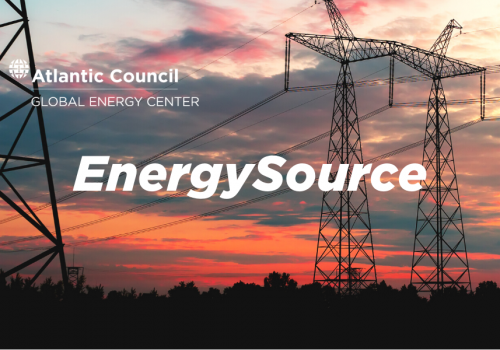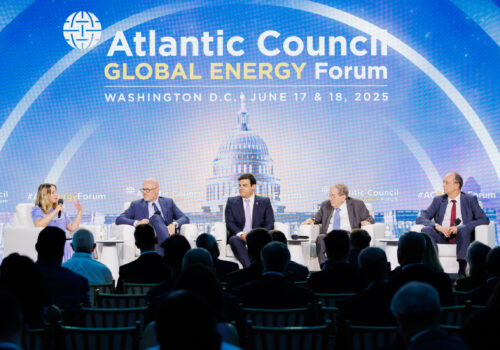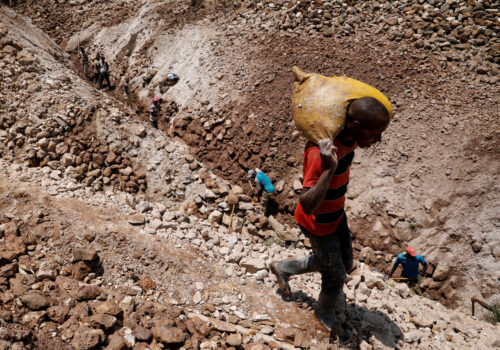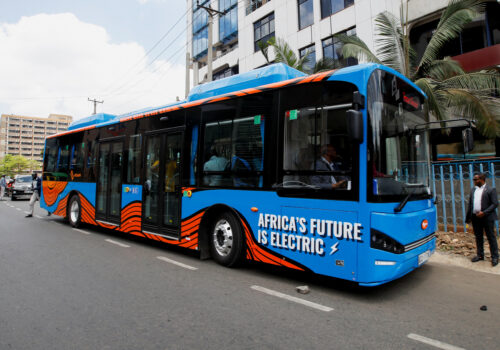The Trump administration recently paused funding for Power Africa, an initiative to facilitate investment to expand electricity access, to reconsider if it aligns with US interests.
At a time when the administration is focused on national security interests and economic opportunities, investing in African energy infrastructure may seem like a diversion of resources. But, on the contrary, it strengthens US supply chains, reduces Chinese market control, and opens profitable avenues for American firms. In this context, Power Africa should be repositioned not as foreign aid, but as a strategic investment in this administration’s energy dominance agenda. By reimagining key projects, prioritizing strategic energy partnerships, and enabling American business expansion, Power Africa can bolster US supply chain security and counter Chinese influence in Africa.
STAY CONNECTED
Sign up for PowerPlay, the Atlantic Council’s bimonthly newsletter keeping you up to date on all facets of the energy transition.
Successes in US-Africa energy collaboration
Started in 2013, Power Africa aimed to double electricity access in sub-Saharan Africa by leveraging US aid dollars to de-risk private investment. In just a decade, $7 billion in US funding catalyzed more than $80 billion in commitments from African governments, the private sector, and multilateral development banks. The initiative was part of a broader strategy to increase US influence in Africa, where China’s Belt and Road Initiative has a significant presence. During its tenure, Power Africa added 14.3 gigawatts of electricity across Africa and engaged over one hundred US companies to market opportunities in Africa.
These accomplishments demonstrate how US public-private collaboration through Power Africa has opened new markets for American firms while simultaneously challenging China’s dominance in Africa’s energy development.
US Energy Secretary Chris Wright reaffirmed the US commitment to the continent at the Powering Africa Summit in Washington, DC, on March 7, despite Power Africa’s projects ceasing in late February. Wright stated that Africa needs “more energy of all kinds”—from oil and gas to renewables—and said the US government would prioritize mutually beneficial partnerships but without a “top-down grand plan” to make that happen. However, Power Africa projects currently remain frozen.
Increasing African energy access is in the US’ interest
Power Africa is not just about energy access—it promotes US business. Africa’s energy sector is among the fastest growing in the world. During Power Africa’s tenure, US firms engaged in over $26.4 billion worth of deals in generation, transmission, and off-grid systems. Through a redesigned Power Africa, American firms could provide gas turbines, microgrids, and modular energy systems to Africa. This would strengthen US energy companies, which in turn aligns with the administration’s energy dominance strategy.
If the Trump administration decides to cease all or most Power Africa projects, US businesses could face reduced access to emerging African energy markets. Ending Power Africa creates an opening for China, Russia, or even the European Union to offer financing and infrastructure support instead, strengthening their geopolitical influence and substantially limiting the opportunity for US investment in the region. In other words, Power Africa is not aid, it is a pipeline for American exports and a mechanism to strengthen US export competitiveness in global energy geopolitics.
Africa can bolster US supply chain security
Increased US-Africa collaboration has the potential to support more secure and diversified supply chains for US manufacturing. As automakers and other industries actively seek to reduce dependence on China for critical minerals, African countries are emerging as important partners in the global battery material supply chain.
Access to stable, affordable electricity is foundational for scaling mining and mineral processing operations. While increased access to power at mining and processing sites in Africa does not guarantee investment will flow, it lays the essential infrastructure that makes development possible. US support to upgrade underdeveloped grid infrastructure and invest in new power generation can help meet the energy demands of mineral production and help the United States secure a stable supply for domestic battery and electric vehicle production. Programs like Power Africa can offer miners an alternative to the Chinese financing that dominates the sector, expanding US access to ongoing operations. For example, financing solar microgrids as a cost-effective and scalable power solution for remote mining operations in the Democratic Republic of the Congo would simultaneously boost Congolese mining productivity, support US supply chain resilience, and ensure reliable access to essential battery materials outside of China’s control.
Countering China
China has a growing presence in Africa, becoming the largest investor in renewable energy on the continent. Chinese entities are also expanding their control over grid infrastructure and mineral extraction, raising concerns about Beijing’s geopolitical influence. Power Africa provides an opportunity for the United States to counter China’s power in Africa by offering alternative partnerships that promote transparency and sustainable development.
From 2000–22, China provided $52.4 billion in loans to Africa’s energy sector, with over half allocated to fossil fuel projects. This significant investment positions China as the dominant player in Africa’s energy landscape. Without continued engagement through initiatives like Power Africa, the United States risks ceding the limited foothold it had established, allowing China to further consolidate its influence through state-backed financing, large-scale infrastructure deals, and favorable trade deals. Without a credible alternative to Chinese financing like Power Africa, Chinese state-owned enterprises will continue to outmaneuver US firms and lock in resource access critical to global energy markets.
Reenvisioning Power Africa for an era of US energy dominance
Wright is justified in recommitting to Africa, as partnerships across the continent can further US interests. The National Energy Dominance Council, of which Wright serves as vice chair, aims to make the United States a global leader in energy production—that requires not just fossil fuel production, but also securing critical minerals needed for new energy technologies in an all-of-the-above energy strategy.
Critics—including those in Africa—have argued that Power Africa has been too focused on renewables. The program should indeed cast a wide net, as Wright noted. In fact, Power Africa has also invested in gas, and was “never a climate initiative,” according to its former deputy director, Katie Auth. It was “always a project backed by US firms and driven by US economic viability.”
Under a new administration focused on US energy dominance, Power Africa should be seen as an enabler of that agenda, rather than a hindrance. Power Africa doesn’t contradict the America First doctrine; it advances it. Power Africa enhances US energy security by enabling critical minerals development, expanding US firms participation and business in energy projects, supporting American jobs and technologies, and securing long-term geopolitical influence and competitiveness—all of which are core pillars of energy dominance and the administration’s goals more broadly. If the Trump administration doesn’t act, China will.
Molly Moran is a former young global professional at the Atlantic Council Global Energy Center.
RELATED CONTENT
OUR WORK

The Global Energy Center develops and promotes pragmatic and nonpartisan policy solutions designed to advance global energy security, enhance economic opportunity, and accelerate pathways to net-zero emissions.
Image: Power Lines in Namibia. (Markus Kammermann, Unsplash) https://unsplash.com/photos/power-lines-stretch-across-a-vast-open-landscape-8m_5VZtyVbc
